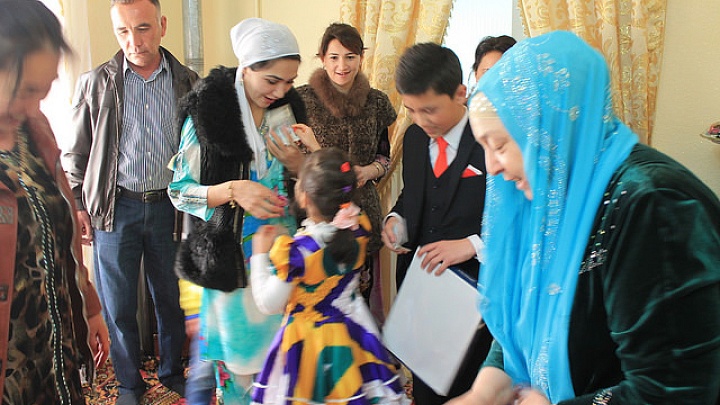To defeat ISIS in Iraq, the support of the Sunni tribes is essential. The Sunni tribes felt disenfranchised and, therefore, over the last several years they have protested and struggled against Shi’a-led groups and leadership they believed were favored over them politically and economically by the government of former Prime Minister Nuri al-Maliki. This internal schism was the distraction ISIS needed to gain a foothold in Iraq, leading eventually to its occupation of vast amounts of territory there and in Syria this past summer.
Initially, many Sunni tribal groups welcomed and joined ISIS as a counter-force to Maliki, similar to the way many Sunni tribesmen joined Al Qaeda in Iraq (AQI) during the initial years of the 2003 Iraq War. ISIS offered hope for betterment in some segments of Sunni society. However, just as the tolerant and/or collaborative Sunni groups formed “Sunni Awakening” groups to fight AQI in 2005-06, as they have realized it is a tyrannical and repressive group, similar groups are already forming in Iraq today. These newly forming or re-forming tribal groups realize the ultimate goals of ISIS are not compatible with Sunni goals, or perhaps more importantly, are in opposition to traditional tribal roles. This creates an opportunity for the U.S. and the anti-ISIS coalition to help change the character of fight on the ground in Iraq, much as it did during my time there in 2005/6.
As right as it is to say the support of the Sunni tribes is essential in the fight against ISIS, it is equally important to highlight the role of individual tribes within that movement. Sunni’s are not one homogeneous block. No group in any society is. The Sunni are broken down into tribal components based on lineage and location, each of which have diverse needs and wants based on their own circumstances. The Sunni of Anbar have lived in a primarily Sunni region and have a different perspective than the Sunni of Ninawa and elsewhere who have lived in close proximity to Shi’a and Kurds. It is import to distinguish between these tribal groups and their varying levels of support for or opposition to—sometimes both—ISIS.
al-Jubur Awakening
One of the most dominant, cohesive, and consistent Sunni tribes to consider in this battle against ISIS is the Jubur tribe. The Jubur tribe is the largest Arab tribe in Iraq and populates much of the territory of central and northern parts of the country, primarily up and down the Tigris River. The Jubur have strong political and economic influence in the Salah ad Din Governorate in particular. In the area around Bayji, one of the most significant towns of Salah ad Din, the Jubur tribe is the most dominant, constantly vying for power and control over essential services and government with the powerful, yet smaller, Ubayd tribesman.
Today control of the Bayji Oil Refinery is a source of much competition between ISIS, the Jubur, and the Ubayd. Although ISIS has controlled Bayji since June 2014, the oil refinery has not fallen to them because the Iraqi Army and the Jubur tribe cooperate to protect it. The refinery, the largest in Iraq, is essential to the Baghdad government. It has also long been a profitable source of income, through legal and illegal means, for the Jubur. The oil refinery is a tangible example of what the Sunni can and will do to defend their tribal considerations from attack. As the Jubur and Ubayd have shown, they are capable of defending their territory when necessary, especially when supporting the aggressor does not provide them any political or financial incentive or harms their tribal interests. Supporting ISIS has not been very beneficial in Bayji and similar towns that Sunni tribes dominate.
There is a multitude of examples of the tribe resisting the advance of ISIS from the northern Salah ad Din Governorate around Az Zawiyah and south into Ad Dulu’iyah. Dulu’iyah neighbors the Diyala Governorate near the areas surrounding the essential infrastructure of the Mansuriyah Gas Fields and the Hamrin Dam and Reservoir. The majority of the Jubur resistance has been in Ad Duluiyah. Although a variety of Arab Sunni tribal confederations populate Dulu’iyah, it is the southern Jubur neighborhood of the town and its population that has mounted the strongest and most consistent resistance to ISIS. As a result, the Jubur in Dulu’iyah have been subject to significant acts of retaliation by ISIS extremists, including in a suicide attack struck a gathering of Jubur in September 2014.
Sunni tribal pushback against ISIS is forming more quickly overall than during my time there during the 2005-6 Iraq War resistance to AQI. The Jubur tribe has thus far offered the most consistent Sunni tribal resistance against ISIS in all of Iraq.
The “al-Jubur Awakening” has been consistently fighting ISIS forces in Dulu’iyah as other groups were slower to take up arms. One of the more interesting aspects of the Jubur opposition is that they do not seem to be merely fighting for their tribal or sectarian considerations, but have even worked together with the Shia community in Dulu’iyah and surrounding towns to slow the advance of ISIS throughout the area. Although there are certainly some Jubur tribesman fighting for ISIS, the same can also be said for elements of nearly any Sunni Arab tribe, such as the Shammar and the Dulaim tribal confederations. Nonetheless, there are a far greater number of incidents of opposition to ISIS among the Jubur. Even the Jubur feel as if they are singular in their opposition.
Why They Fight ISIS
What is the motivation for the Jubur tribe to strongly oppose ISIS? One great motivation is their fear of reprisals for supporting the original “Sunni Awakenings” groups against AQI. In addition, the Jubur tribes in Dulu’iyah have not suffered as much as other Arab tribes under the Shiite-dominated government, but have rather worked with the government. Since the Jubur have been able to find a balance with the government, they have been able to maintain economic and political control in the Salah ad Din governorate they dominate, which includes a substantial amount of oil fields and the Bayji Oil Refinery. Being able to control these legitimate sources of income means their control of smuggling is likely significant, and profitable. Jubur tribesmen have great incentive to fight to preserve their lives, lifestyle, and livelihood from ISIS.
Sunni tribal pushback against ISIS is forming more quickly overall than during my time there during the 2005-6 Iraq War resistance to AQI. The Jubur tribe has thus far offered the most consistent Sunni tribal resistance against ISIS in all of Iraq. This is not only due to prior exposure to Islamic extremist repression, but also because Sunni Arab tribes are not simultaneously juggling fights against American invaders and Al Qaeda in Iraq. The Jubur tribe can focus solely on fighting ISIS in their territory with the support of the Baghdad government.
Until now the United States and anti-ISIS coalition partners have favored protecting non-Sunni groups in Iraq, namely the Shi’a, Kurds, and Yazidi. It is imperative that the U.S. and international community not squander the opportunity now to support anti-ISIS Sunni Arab groups, as they did during the Shaitat tribal revolt in Syria in August 2014. The U.S. and its anti-ISIS coalition partners should take advantage of this opportunity to change the balance on the ground as in Iraq in 2005-6 by supporting the Jubur tribe in its fight against ISIS.
[Photo 1: Flickr CC: U.S. Army; map: author]


